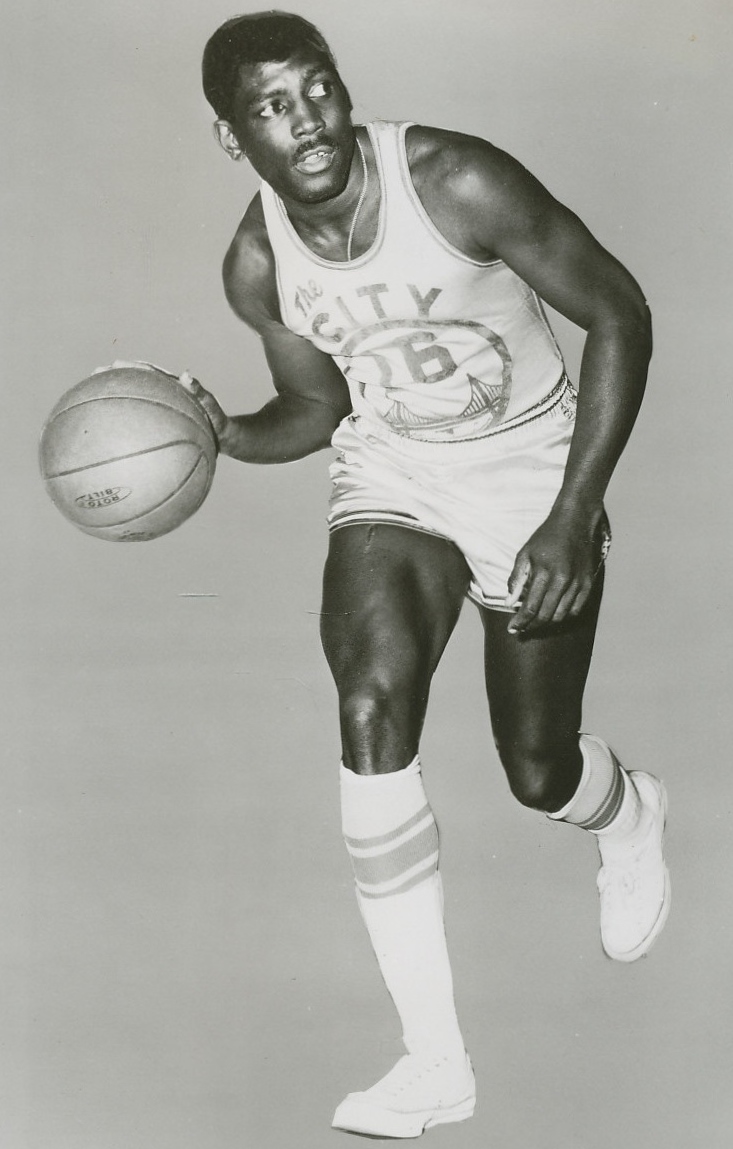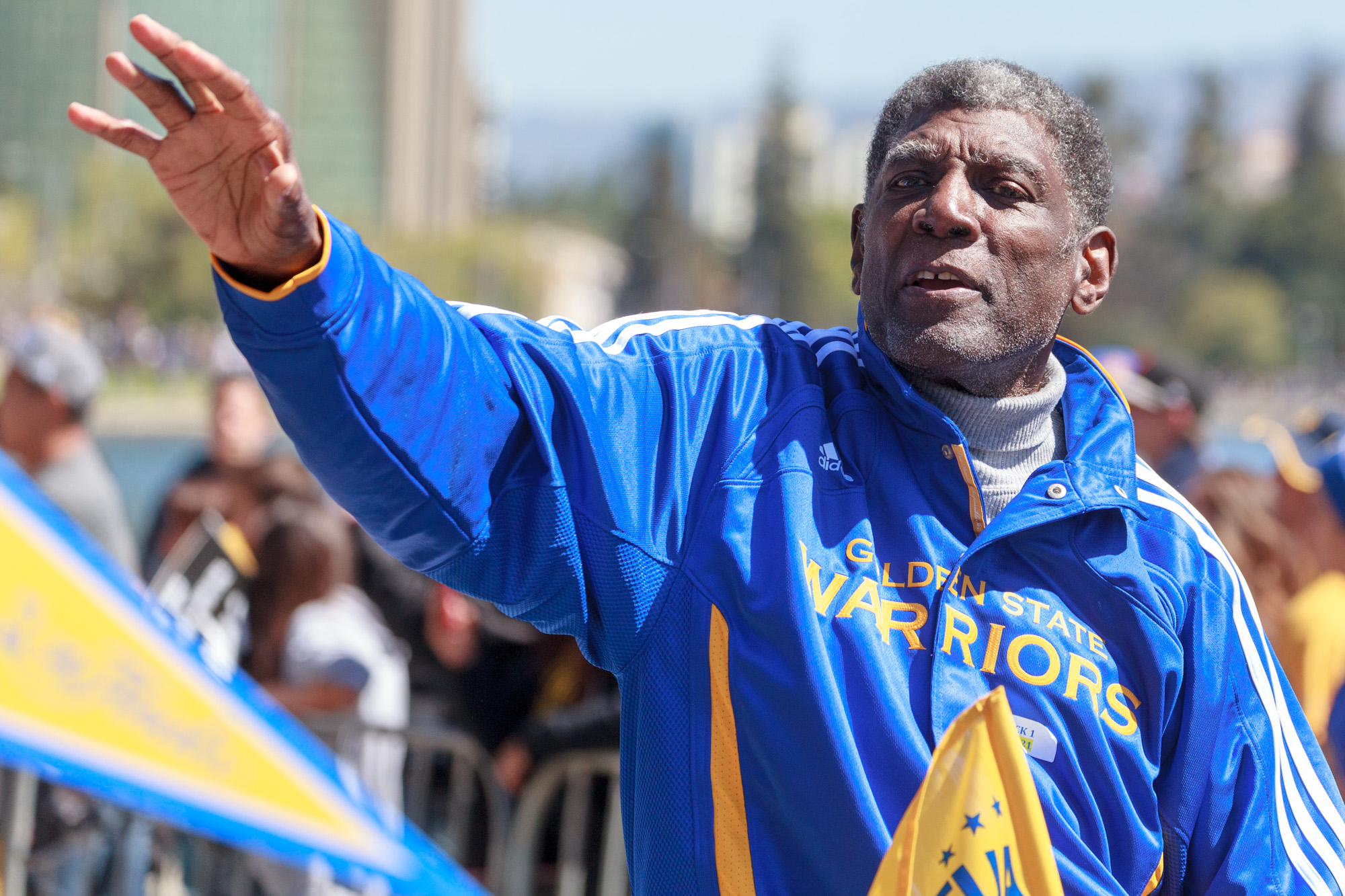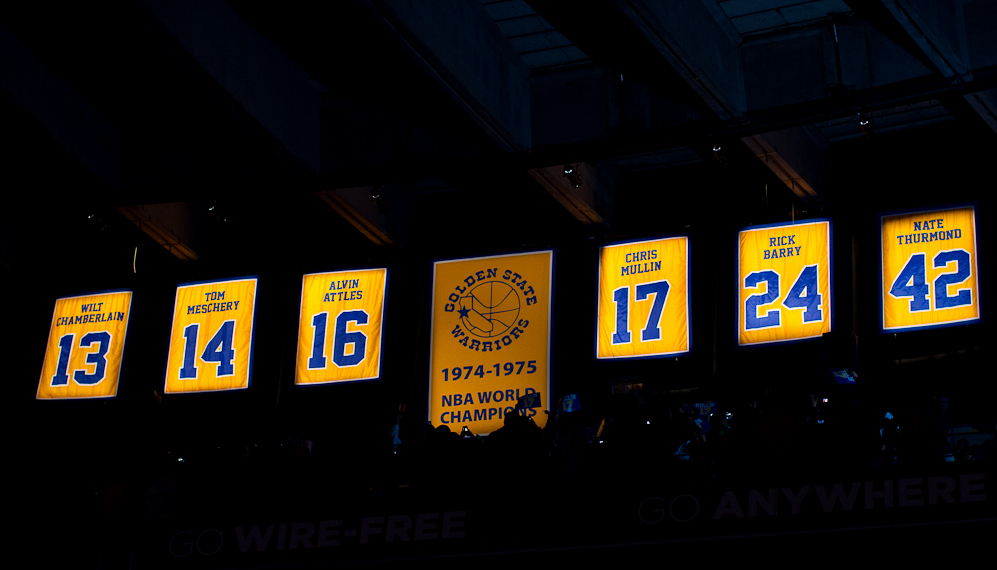1. Overview

Alvin Austin Attles Jr. (November 7, 1936 - August 20, 2024) was a prominent American professional basketball player, coach, and executive who dedicated his entire career to the Golden State Warriors of the National Basketball Association (NBA). Known by his distinctive nickname, "The Destroyer" (파괴자PaegyejaKorean), he primarily played as a point guard. Attles was drafted by the Warriors in 1960 and spent 11 seasons as a player with the team, including its relocation from Philadelphia to the San Francisco Bay Area in 1962. He transitioned to a player-coach role during the 1970-71 season, his final year as a player, and subsequently became the team's full-time head coach. He famously led the Warriors to an NBA championship in 1975. After stepping down as head coach in 1983, Attles served as the Warriors' general manager from 1983 to 1986. He remained an integral part of the Warriors organization for the rest of his life, holding roles such as team ambassador and community relations representative. His jersey number 16 was retired by the Warriors in 1977, and he was inducted into the Naismith Memorial Basketball Hall of Fame in 2019, cementing his lasting impact on the franchise and the sport.
2. Early Life and Background
Al Attles's early life and educational pursuits laid the foundation for his distinguished career in basketball, beginning in his hometown of Newark, New Jersey.
2.1. Childhood and Education
Attles was born in Newark, New Jersey, to Alvin Sr. and Geraldine Attles. His father worked as a railway porter. He attended Weequahic High School in Newark, where he developed his athletic skills. Following high school, Attles pursued higher education at North Carolina A&T State University, where he earned a bachelor's degree in Physical Education and History. Before being drafted by the Warriors, Attles had initially planned to return to Newark to coach at his local junior high school. He even initially declined the Warriors' draft offer before ultimately accepting and attending their training camp. Demonstrating his commitment to education, Attles later earned a master's degree in Curriculum and Instruction from the University of San Francisco in 1983.
3. Playing Career
Al Attles's playing career spanned eleven seasons, all with the Warriors franchise, during which he established himself as a tenacious point guard and a consistent presence for the team.
3.1. NBA Debut and Major Activities
Attles was selected by the then-Philadelphia Warriors in the fifth round of the 1960 NBA draft, as the 39th overall pick. He played 11 seasons with the team, from 1960 to 1971. He moved with the team from Philadelphia to the Bay Area at the end of the 1962 season. Attles earned the nickname "The Destroyer" due to his strong defensive capabilities and an incident where he punched an opposing player in the jaw. Throughout his playing tenure, Attles remained a steadfast presence for the Warriors as key players like Wilt Chamberlain, Paul Arizin, Tom Meschery, Nate Thurmond, Rick Barry, and Jeff Mullins frequently changed teams.
3.2. Key Games and Playoffs
Attles participated in several significant moments during his playing career. On March 2, 1962, during Wilt Chamberlain's 100-point game, Attles was the team's second-leading scorer, contributing 17 points on a perfect 8-of-8 shooting from the field and 1-of-1 from the free-throw line. He was a reserve player on the 1964 Warriors team (which included Wilt Chamberlain and Guy Rodgers) that reached the 1964 NBA Finals but ultimately lost to the Boston Celtics in five games. Attles also played on the Warriors' 1967 team, which advanced to the championship series but was defeated in six games by Chamberlain's formidable Philadelphia 76ers squad, which finished the season with a 68-13 record.
4. Coaching Career
Al Attles made a significant transition from player to coach, leading the Golden State Warriors to their first NBA championship in the Bay Area and establishing a lasting legacy within the franchise.
4.1. Player-Coach and Transition to Head Coach
Attles was appointed player-coach of the Warriors midway through the 1969-70 NBA season, taking over from George Lee. This appointment made him one of the first African-American head coaches in the NBA. He retired as a player after the 1970-71 season to fully commit to his role as head coach. Attles coached the Warriors until 1983, compiling a regular-season record of 557 wins and 518 losses, with an overall record including playoffs of 588 wins and 548 losses across 14 seasons. He is recognized as the longest-serving coach in Warriors history and holds the record for the most wins in franchise history. During the 1979-80 Golden State Warriors season, Attles suffered a torn Achilles tendon, which caused him to miss 21 games. His assistant coach, Johnny Bach, covered for him during this period. Although the Warriors' performance had declined after their 1967 Finals appearance, their record improved under Attles's leadership, making them a consistent playoff contender.
4.2. NBA Championship Victory
Attles's most notable achievement as a coach came in the 1975 NBA Finals, where he led the Rick Barry-led Warriors to an unexpected victory over the heavily favored Washington Bullets. This triumph made him the second African-American coach to win an NBA title, following Bill Russell. The 1975 NBA Finals was also historically significant as it marked the first time that two African-American head coaches, Attles and the Bullets' K.C. Jones, faced each other in a major United States professional sports championship. The Warriors swept the Bullets in four games to claim the championship. The following season, the Warriors attempted to defend their title but were defeated by the Phoenix Suns in the conference finals in seven games. Despite this, the team would only make one more playoff appearance for the remainder of Attles's tenure as coach.
5. Administrative and Other Roles
Beyond his impactful playing and coaching careers, Al Attles continued to contribute significantly to the Golden State Warriors organization in various administrative and ambassadorial capacities, cementing his status as a "Warrior for life."
From 1983 to 1986, Attles served as the Warriors' general manager. After his tenure as general manager, he remained employed by the Warriors for the rest of his life, taking on crucial roles such as team ambassador and community relations representative. His dedication to the franchise was unparalleled; he spent over 60 years on the Warriors' payroll in one capacity or another, marking the longest continuous stint of any individual with a single team in the NBA. Attles also briefly returned to coaching as an assistant coach for the Warriors during the 1994-95 season. He was one of the last living members of the franchise who dated back to their time in Philadelphia, serving as a vital link to the team's foundational history.
6. Personal Life

Al Attles's personal life was marked by strong family ties and notable friendships, providing a glimpse into the man behind the basketball legend.
In 1964, Attles married Wilhelmina Rice. His Warriors teammate, the legendary Wilt Chamberlain, served as his best man at the wedding. The couple had two children, Alvin III and Ericka. Attles was also a proud grandfather to four grandchildren and a great-grandfather to one great-grandson. One of his grandsons, Isaiah Attles, followed in his footsteps by playing college basketball for the Alcorn State Braves. Beyond his family, Attles maintained friendships with prominent figures such as comedian Bill Cosby and jazz musician Les McCann. Attles was also a practicing Catholic.
7. Death
Al Attles passed away at the age of 87 on August 20, 2024, at his home in the East Bay, California area. Prior to his death, he had been receiving hospice care for several weeks.
8. Honors and Legacy
Al Attles's profound and enduring impact on the sport of basketball, particularly on the Golden State Warriors franchise, is recognized through numerous honors and a lasting legacy that spans over six decades.
8.1. Major Awards and Inductions

Attles's jersey number 16 was retired by the Warriors in 1977, a significant tribute to his contributions as both a player and a coach. His alma mater, North Carolina A&T State University, also honored him by retiring his number 22 on February 7, 2015, making it the first number ever retired by their basketball team.
In 1993, Attles was inducted into the Bay Area Sports Hall of Fame. His broader contributions to basketball were recognized in 2014 when he received the prestigious John W. Bunn Lifetime Achievement Award from the Naismith Memorial Basketball Hall of Fame. This award is considered the Hall of Fame's highest honor, second only to enshrinement itself, and is given to individuals who have significantly impacted the sport. In 2017, Attles was also a recipient of the Chuck Daly Lifetime Achievement Award, which honors individuals for their coaching achievements and contributions to the NBA.
The pinnacle of his recognition came on April 6, 2019, when Al Attles was formally inducted into the Naismith Memorial Basketball Hall of Fame as a contributor, solidifying his place among basketball's all-time greats. His remarkable tenure with the Warriors, spanning over 60 years in various capacities, stands as the longest continuous stint of any individual with a single team in the NBA, a testament to his unwavering loyalty and dedication to the franchise.
9. Statistics
The following tables provide a comprehensive overview of Al Attles's statistical performance throughout his career as both a player and a coach in the NBA.
9.1. Player Statistics
9.1.1. Regular season
| Year | Team | GP | MPG | FG% | FT% | RPG | APG | PPG |
|---|---|---|---|---|---|---|---|---|
| 1960-61 | Philadelphia | 77 | 20.1 | .409 | .599 | 2.8 | 2.3 | 7.0 |
| 1961-62 | Philadelphia | 75 | 32.9 | .474 | .592 | 4.7 | 4.4 | 11.3 |
| 1962-63 | San Francisco | 71 | 26.4 | .478 | .646 | 2.9 | 2.6 | 10.4 |
| 1963-64 | San Francisco | 70 | 26.9 | .452 | .673 | 3.4 | 2.8 | 10.9 |
| 1964-65 | San Francisco | 73 | 23.7 | .384 | .624 | 3.3 | 2.8 | 9.4 |
| 1965-66 | San Francisco | 79 | 26.0 | .503 | .611 | 4.1 | 2.8 | 11.2 |
| 1966-67 | San Francisco | 69 | 25.6 | .454 | .583 | 4.7 | 3.9 | 7.4 |
| 1967-68 | San Francisco | 67 | 29.7 | .467 | .694 | 4.1 | 5.8 | 9.8 |
| 1968-69 | San Francisco | 51 | 29.7 | .451 | .638 | 3.5 | 6.0 | 8.2 |
| 1969-70 | San Francisco | 45 | 15.0 | .386 | .664 | 1.6 | 3.2 | 5.1 |
| 1970-71 | San Francisco | 34 | 9.4 | .407 | .585 | 1.2 | 1.7 | 2.0 |
| Career | 711 | 25.1 | .451 | .632 | 3.5 | 3.5 | 8.9 | |
9.1.2. Playoffs
| Year | Team | GP | MPG | FG% | FT% | RPG | APG | PPG |
|---|---|---|---|---|---|---|---|---|
| 1961 | Philadelphia | 3 | 36.7 | .462 | .357 | 4.0 | 3.0 | 9.7 |
| 1962 | Philadelphia | 12 | 28.2 | .368 | .548 | 4.6 | 2.3 | 6.1 |
| 1964 | San Francisco | 12 | 32.2 | .403 | .536 | 3.1 | 2.5 | 12.2 |
| 1967 | San Francisco | 15 | 15.8 | .435 | .375 | 4.1 | 2.5 | 3.1 |
| 1968 | San Francisco | 10 | 27.7 | .403 | .767 | 5.3 | 7.0 | 7.3 |
| 1969 | San Francisco | 6 | 18.2 | .333 | .250 | 3.0 | 3.5 | 2.5 |
| 1971 | San Francisco | 4 | 11.8 | .571 | .571 | 2.0 | 2.8 | 3.0 |
| Career | 62 | 24.3 | .403 | .544 | 4.0 | 3.3 | 6.4 | |
9.2. Coach Statistics
| Team | Year | G | W | L | W-L% | Finish | PG | PW | PL | PW-L% | Result |
|---|---|---|---|---|---|---|---|---|---|---|---|
| San Francisco | 1969 | 30 | 8 | 22 | .267 | 6th in Western | - | - | - | - | - |
| San Francisco | 1970 | 82 | 41 | 41 | .500 | 2nd in Pacific | 5 | 1 | 4 | .200 | Lost in Conf. Semifinals |
| Golden State | 1971 | 82 | 51 | 31 | .622 | 2nd in Pacific | 5 | 1 | 4 | .200 | Lost in Conf. Semifinals |
| Golden State | 1972 | 82 | 47 | 35 | .573 | 2nd in Pacific | 11 | 5 | 6 | .455 | Lost in Conf. Finals |
| Golden State | 1973 | 82 | 44 | 38 | .537 | 2nd in Pacific | - | - | - | - | - |
| Golden State | 1974 | 82 | 48 | 34 | .585 | 1st in Pacific | 17 | 12 | 5 | .706 | Won NBA Championship |
| Golden State | 1975 | 82 | 59 | 23 | .720 | 1st in Pacific | 13 | 7 | 6 | .538 | Lost in Conf. Finals |
| Golden State | 1976 | 82 | 46 | 36 | .561 | 3rd in Pacific | 10 | 5 | 5 | .500 | Lost in Conf. Semifinals |
| Golden State | 1977 | 82 | 43 | 39 | .524 | 5th in Pacific | - | - | - | - | - |
| Golden State | 1978 | 82 | 38 | 44 | .463 | 6th in Pacific | - | - | - | - | - |
| Golden State | 1979 | 61 | 18 | 43 | .295 | 6th in Pacific | - | - | - | - | - |
| Golden State | 1980 | 82 | 39 | 43 | .476 | 4th in Pacific | - | - | - | - | - |
| Golden State | 1981 | 82 | 45 | 37 | .549 | 4th in Pacific | - | - | - | - | - |
| Golden State | 1982 | 82 | 30 | 52 | .366 | 5th in Pacific | - | - | - | - | - |
| Career | 1,075 | 557 | 518 | .518 | 61 | 31 | 30 | .508 |